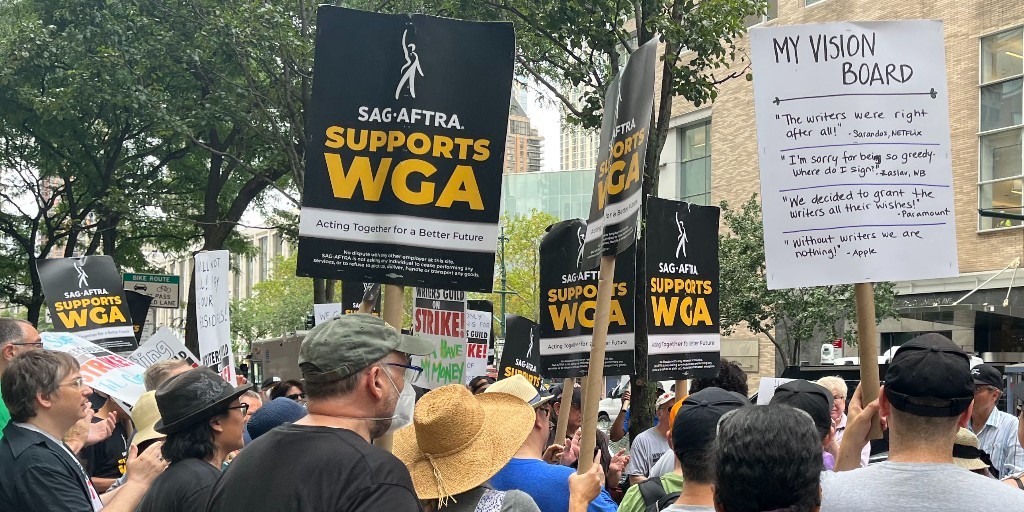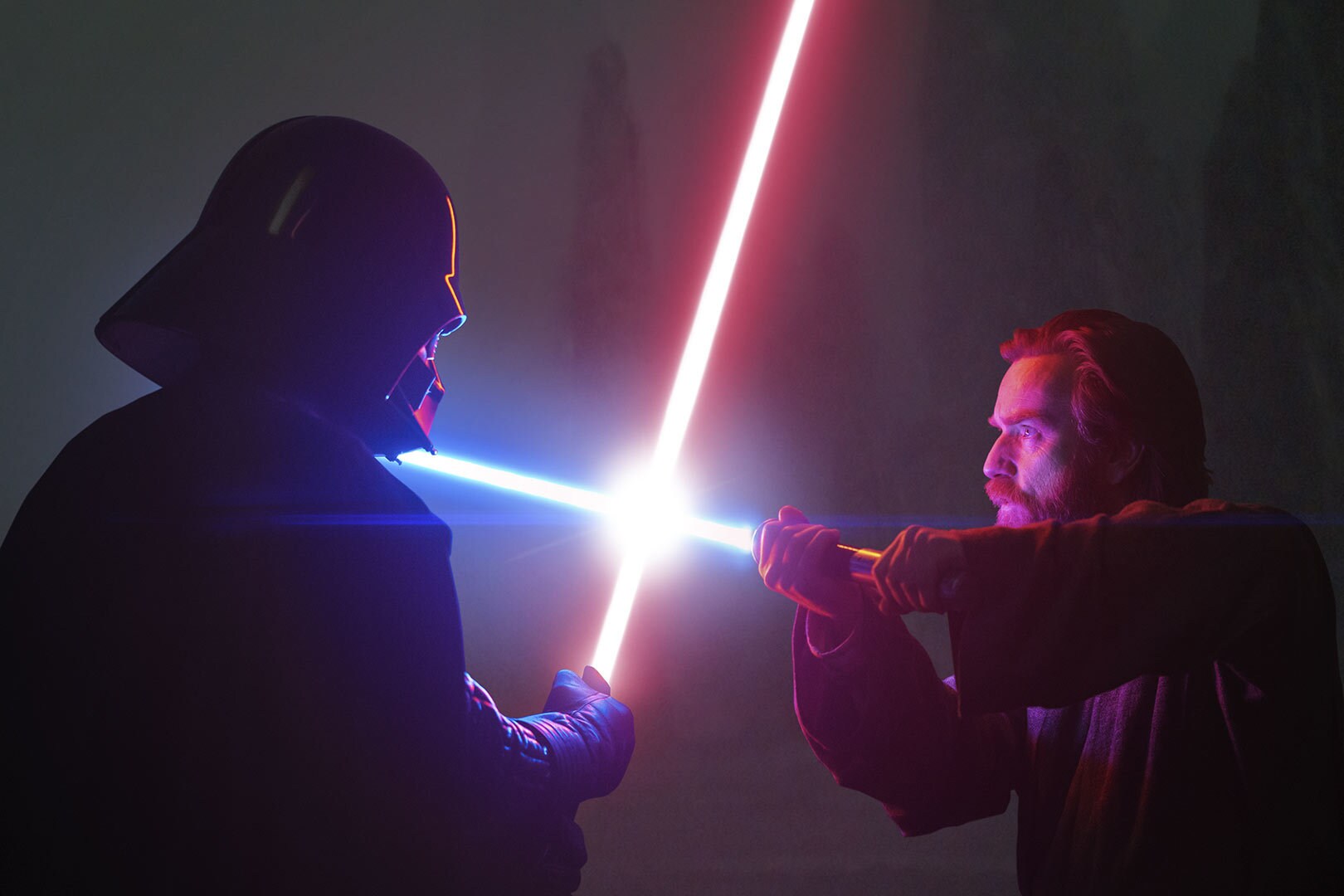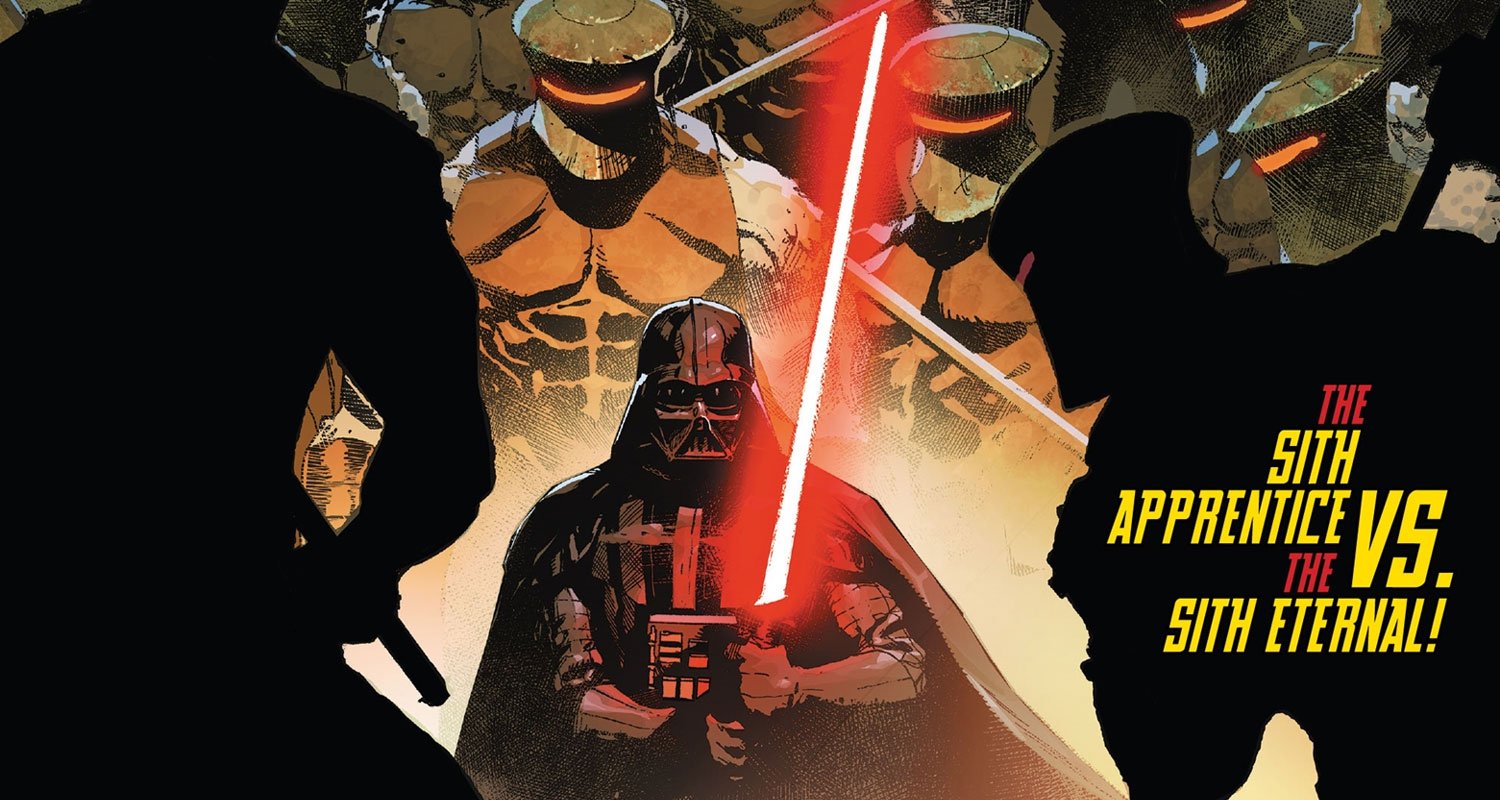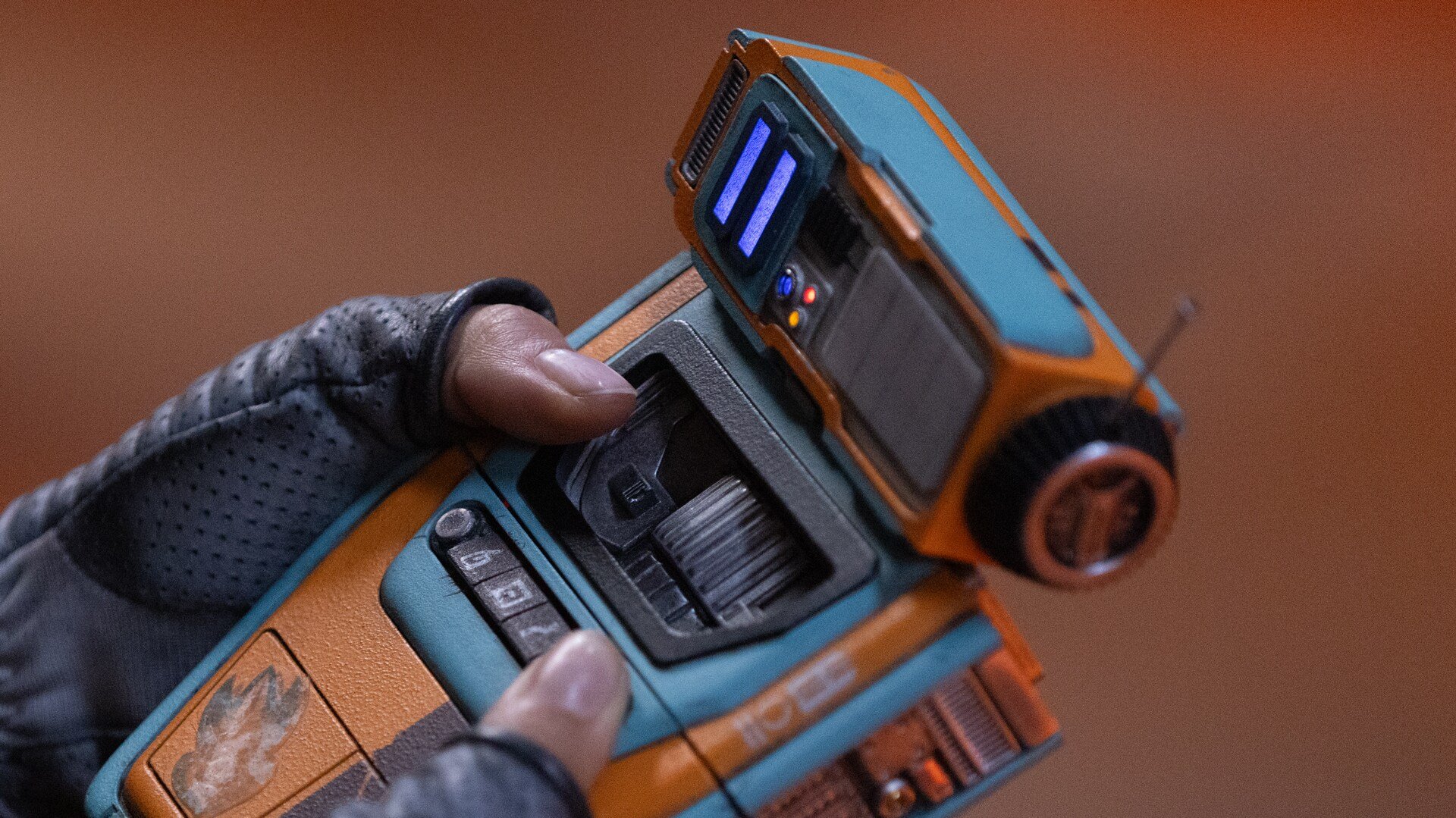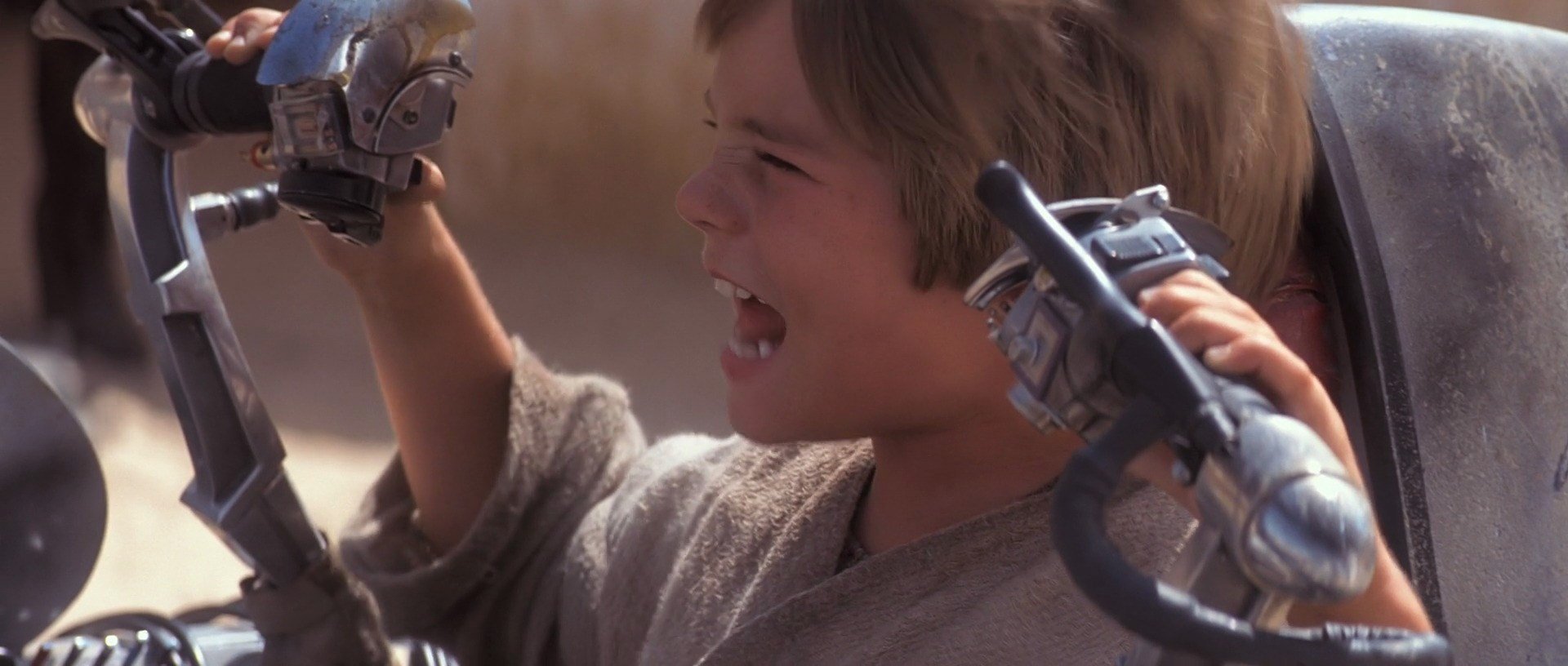Breaking Down the Historic SAG-AFTRA Strike That Has Pressed Pause on Hollywood
On Thursday, July 13, the Screen Actors Guild – American Federation of Television and Radio Artists (SAG-AFTRA) announced that all members of the guild will be going on strike starting at 12:01am PT, July 14. This came after a weeks-long negotiation with the studios where the actors’ union sat down with the studios, which group together under the Alliance of Motion Picture and Television Producers (AMPTP), to negotiate a new deal that will reflect the changes that the entire industry has been undergoing since the last contract was signed.
The last deal that the actors held with the studios was to expire on June 30, at midnight. Foreseeing that they could end up in a similar situation to the writers’ on May 1, SAG-AFTRA called in a vote mid-June to ask permission to members to authorize a strike if negotiations fell through. The results of the vote were announced on June 5, two days before the union was to sit down with the studios to start their negotiations, and was used as leverage against them — 97.91% of the voting members were in favor of a strike, a historic turnout.
SAG-AFTRA’s demands included fair compensation amid the ongoing inflation, a commitment by the studios to regulate the use of AI in creating entertainment, and transparency in streaming viewership data that would later be reflected in fair residual compensation. No deal was reached by the end of June, but the studios asked for a 12-day extension of the deadline, which was to now expire on July 12, 11:59pm PT. No deal was reached by that time, and the SAG-AFTRA negotiating committee unanimously recommended a strike would be approved. The National Board held an emergency meeting on Thursday morning to approve it, which SAG-AFTRA President Fran Drescher and lead negotiator Duncan Crabtree-Ireland announced during a press conference held at noon PT.

SAG-AFTRA members supporting the WGA strike. (Via @sagaftra Twitter.)
Said Drescher when making the announcement:
“It came with great sadness that we came to this crossroads. We had no choice. We are the victims here. We are being victimized by a very greedy entity. I am shocked by the way the people we have been in business with are treating us. I cannot believe it, quite frankly, how far apart we are on so many things. How they plead poverty, that they’re losing money left and right while giving millions to CEOs. It’s disgusting, shame on them.
Drescher’s mentioning of this happened just hours after Bob Iger told CNBC that what the writers were asking for was unrealistic:
“It’s very disturbing to me. We’ve talked about disruptive forces on this business and all the challenges we’re facing, the recovery from COVID which is ongoing, it’s not completely back. This is the worst time in the world to add to that disruption. I understand any labor organization’s desire to work on behalf of its members to get the most compensation and be compensated fairly based on the value that they deliver.
We managed, as an industry, to negotiate a very good deal with the directors guild that reflects the value that the directors contribute to this great business. We wanted to do the same thing with the writers, and we’d like to do the same thing with the actors. There’s a level of expectation that they have, that is just not realistic. And they are adding to the set of the challenges that this business is already facing that is, quite frankly, very disruptive.”

SAG-AFTRA members walk the WGA strike picket lines. (Via @sagaftra Twitter.)
As it’s been pointed out more than once today by everyone with a keyboard or a microphone at their reach, this statement comes from a business executive who signed a deal last November to make $54 million over two years, and whose contract has just been extended this week, making Wall Street very happy, but leaving actors across the industry with no money to pay for rent.
Shortly after the strike was announced, the AMPTP released a statement where they included some bullet points with the last proposal that they gave the actors last night, and which they rejected. According to them, this included:
- The highest percentage increase in minimums in 35 years.
- 76% increase in High Budget SVOD foreign residuals.
- Substantial increases in pension and health contribution caps.
- Groundbreaking AI proposal which protects performers’ digital likenesses, including a requirement for performer’s consent for the creation and use of digital replicas or for digital alterations of a performance.
- 58% increase in salaries for major role (guest star) performers wages on High Budget SVOD Programs.
- Limitation of self-tape requests, including page, time and tech requirements. Options for virtual or in-person auditions.
- 11% pay increase in year 1 for background actors, stand-ins and photo doubles, an additional 17% increase for background actors required to do extensive self-styling, and an additional 62% increase for stand-ins required to deliver lines during a run-through and photo doubles required to memorize and deliver lines on camera.
- First-time-ever fixed residuals for Stunt Coordinators on television and High Budget SVOD programs.
- Shortened option periods for series regulars earning less than $65,000 per episode on a half-hour series or less than $70,000 per episode on a one-hour series.
- Dancers will now receive the on-camera rate for rehearsal days.
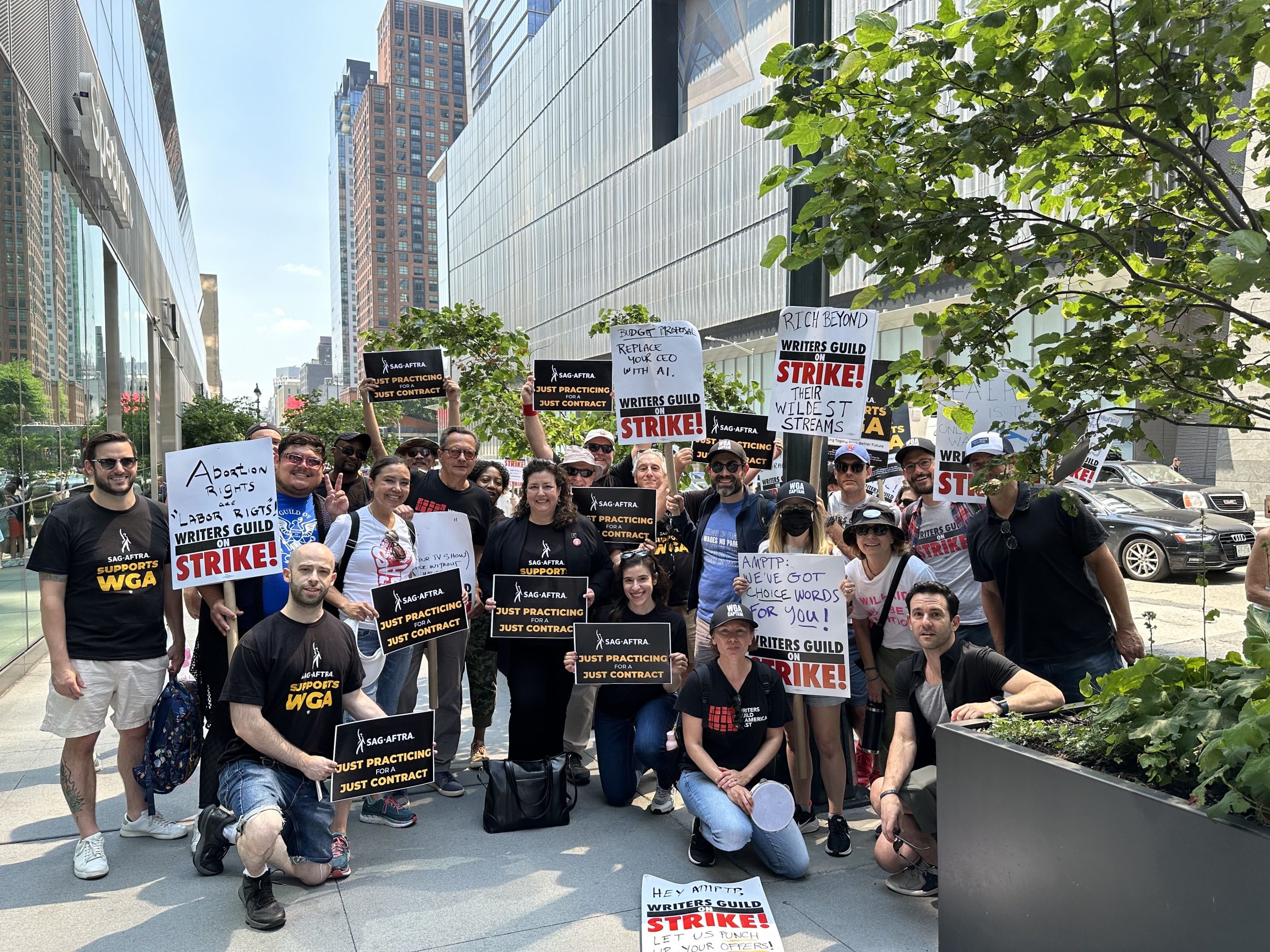
SAG-AFTRA members supporting the WGA strike. (Via @sagaftra Twitter.)
This was brought up multiple times during the round of questions at the press conference, with both Drescher and Crabtree-Ireland denouncing that it was completely unfair and lightyears away from what the actors were demanding, which they called a fair deal. What both the lead negotiator and the union President remarked over and over again was that they were never treated with the respect they deserved by the studios. They insisted that the other side of the table wouldn’t even try to meet them on any of the core issues, from AI regulation to residual compensation. No specifics were ever given, but Crabtree-Ireland did comment on the AI statement by the AMPTP, saying:
“This ‘groundbreaking’ AI proposal that they gave us yesterday, they proposed that our background performers should be able to be scanned, get one day’s pay, and their companies should own that scan, their image, their likeness and should be able to use it for the rest of eternity on any project they want, with no consent and no compensation. So if you think that’s a groundbreaking proposal, I suggest you think again.”
Earlier this week, Fran Drescher was photographed during a Dolce & Gabbana show in Italy, taking a selfie with Kim Kardashian, an event that was highly criticized on social media because of poor optics amid the ongoing negotiation with the studios. When the topic was brought up during the press conference, Crabtree-Ireland defended her colleague right away:
“I want to say it’s outrageous that they would do that. What Fran was doing, was Fran was working. Which is what our members do. And for these employers to cynically try to turn our members against Fran, because she was doing a job that she was under contract to do, while by the way, she was zooming into our negotiations after-work hours, working 18 hours or more a day. It is outrageous, it is wrong, it’s despicable and they should be ashamed of it.”

SAG-AFTRA members supporting the WGA strike. (Via @sagaftra Twitter.)
Drescher later added the following:
“I appreciate that. I’m a brand ambassador for a fashion company and so is Kim. I had only met Kim seconds before that publicity picture was taken. It had nothing to do with being at a party or having fun. It was absolute work. I was in hair and make-up three hours a day, walking in heels on cobblestones, doing things like that which is work –not fun. I’m sure Kim would have rather have been at her home in Malibu with her children, too. But we work, that’s what we do.
At 10:30 at night, I would leave the event, go to my hotel room, and I’d call into the zoom. And when I couldn’t get through to them because I was on a plane, I was texting with [him, meaning Crabtree-Island] constantly throughout the plane ride. I worked around the clock in three different time zones because my parents live in Florida, though I keep asking them to move here and I managed their well-being as well.”
After the press conference, SAG-AFTRA publicly announced the rules for members to follow during a strike, which you can check in full here. In short, they prevent actors from filming anything, taking part in camera tests, rehearsals, and auditions, as well as promoting any project that was part of any previous contract with the studios. That also includes attending conventions, and film festivals, and taking part in FYC events as part of the ongoing Emmy season.
This means that actors will not be able to participate in any press junkets from today until the strike is called off. Notably, Universal Pictures decided to move up the UK premiere of Oppenheimer in London just so actors could take part in the red carpet without breaking strike rules. The cast said they would be respecting the announcement and walked away from the movie before it started just so they wouldn’t be in muddy waters if the strike was announced in the middle of the screening.
Notably, Fran Drescher speculated during the press conference that the studios had asked for a 12-day extension not so they could rethink their negotiation strategy, but so they could promote their summer movies. After all, Mission: Impossible — Dead Reckoning Part One just premiered in theaters, leaving the bulk of the marketing push for Tom Cruise and the rest of the cast behind, while Warner Bros. held the world premiere of Barbie last Sunday (press junket interviews have already taken place as well), and Universal literally held the UK premiere of Oppenheimer while the strike was being announced. The world premiere had taken place in Paris earlier this week.
The Gladiator 2 and Mortal Kombat 2 sets were ready in advance for a possible shutdown, and that was possibly the case for so many others. However, the situation remains unclear for overseas productions. Shows like House of the Dragon season 2 and Industry season 3 are allowed to and will continue filming because most of the cast from those shows is part of a British labor union called Equity, whose rules are very strict and do not allow to strike in solidarity with SAG-AFTRA. The situation is obviously evolving, and it’s possible that this will be obsolete a few hours from now.
Stay tuned for more updates.
Miguel Fernández is a Spanish student that has movies as his second passion in life. His favorite movie of all time is The Lord of the Rings, but he is also a huge Star Wars fan. However, fantasy movies are not his only cup of tea, as authors like Scorsese, Fincher, Kubrick or Hitchcock have been an obsession for him since he started to understand the language of filmmaking. He is that guy who will watch a black and white movie, just because it is in black and white.

